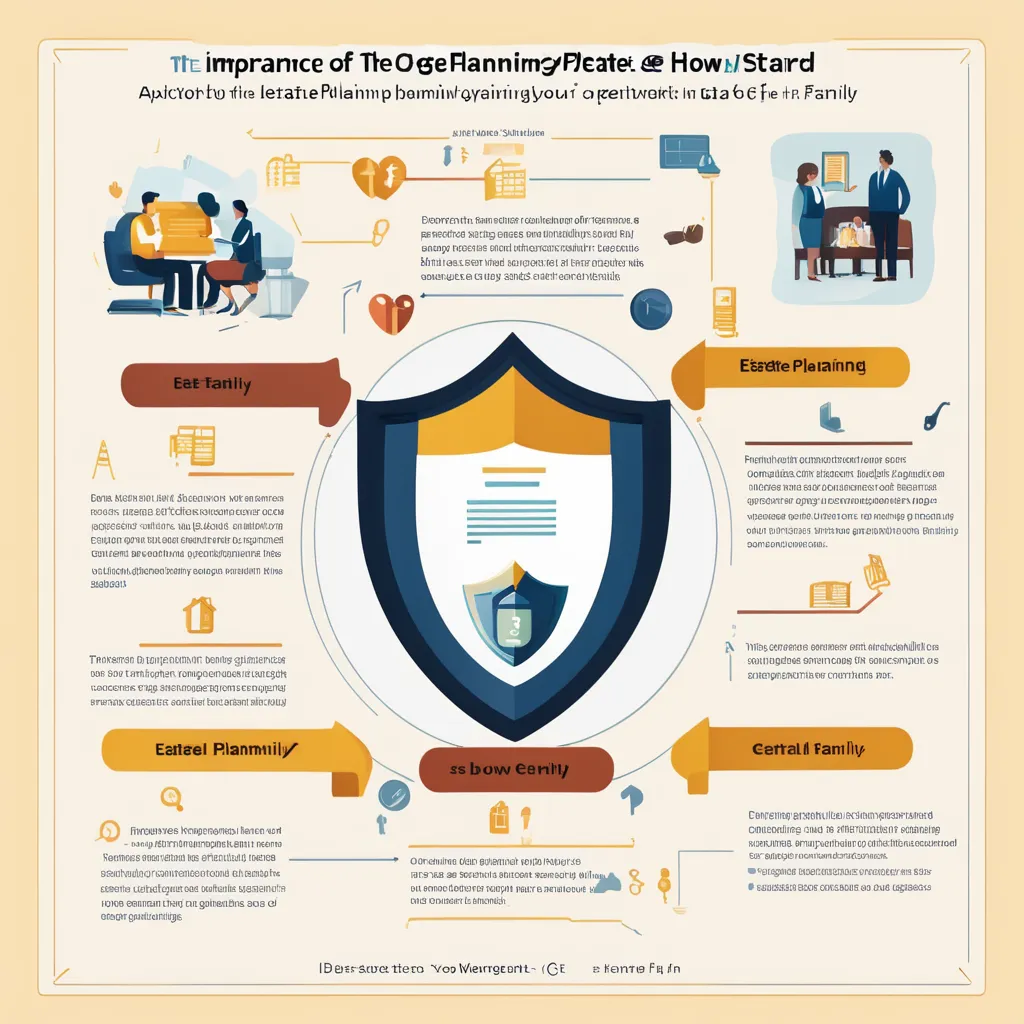Estate planning is a crucial yet often overlooked aspect of financial management. It involves making arrangements for the management and distribution of your assets after your death, ensuring that your wishes are honored and your loved ones are taken care of. Effective estate planning can provide peace of mind, minimize estate taxes, and avoid potential legal complications. In this blog, we’ll explore the importance of estate planning and provide a step-by-step guide on how to get started.
1. Why Estate Planning is Essential
Estate planning is not just for the wealthy; it’s a fundamental process for anyone who wants to ensure their assets are distributed according to their wishes. Here’s why it’s important:
1. Protecting Your Family
Estate planning ensures that your family is financially protected and that your assets are distributed according to your wishes. It helps avoid disputes among heirs and provides for your loved ones in the manner you intend.
Key Benefits:
- Guardianship for Minors: Designate guardians for minor children to ensure they are cared for by individuals you trust.
- Financial Support: Provide financial support for dependents, including spouses, children, or other family members.
2. Minimizing Estate Taxes
A well-structured estate plan can help minimize estate taxes and preserve more of your wealth for your heirs. Estate taxes can significantly reduce the value of your estate if not properly planned for.
Strategies for Minimizing Taxes:
- Gifting: Use annual gift exclusions and lifetime gift exemptions to transfer wealth during your lifetime.
- Trusts: Set up trusts to manage and protect your assets while minimizing tax implications.
3. Avoiding Probate
Probate is the legal process of settling an estate, which can be time-consuming and costly. Estate planning can help avoid or streamline this process, ensuring your assets are distributed more efficiently.
Ways to Avoid Probate:
- Living Trusts: Transfer assets into a living trust to bypass probate.
- Beneficiary Designations: Designate beneficiaries for accounts like life insurance and retirement plans.
4. Ensuring Your Wishes are Followed
Estate planning allows you to dictate how your assets should be distributed, how debts should be handled, and what medical decisions should be made if you’re incapacitated.
Documents to Prepare:
- Will: Outlines your wishes for asset distribution and guardianship.
- Advance Directive: Specifies your medical care preferences if you cannot communicate.
2. Getting Started with Estate Planning
Embarking on estate planning can seem overwhelming, but breaking it down into manageable steps can simplify the process. Here’s how to get started:
1. Assess Your Assets and Liabilities
Begin by creating a comprehensive inventory of your assets and liabilities. This includes:
- Assets: Real estate, bank accounts, investments, personal property, and life insurance.
- Liabilities: Mortgages, loans, credit card debt, and other obligations.
Tips for Assessment:
- Create a List: Document all assets and liabilities in a detailed list.
- Update Regularly: Review and update your list as your financial situation changes.
2. Define Your Goals
Determine what you want to achieve with your estate plan, such as providing for loved ones, minimizing taxes, or supporting charitable causes. Clearly define your objectives to guide the planning process.
Goal Setting Tips:
- Discuss with Family: Talk with family members to understand their expectations and any potential concerns.
- Consult a Professional: Work with an estate planning attorney to ensure your goals are feasible and legally sound.
3. Choose the Right Estate Planning Tools
Select the appropriate tools and documents to achieve your estate planning goals:
- Will: A legal document that specifies how your assets will be distributed after your death.
- Living Trust: A trust that holds your assets during your lifetime and distributes them according to your wishes after your death.
- Power of Attorney: Designates someone to manage your financial affairs if you become incapacitated.
- Advance Directive: Outlines your medical treatment preferences and appoints someone to make healthcare decisions on your behalf.
Tools to Consider:
- Revocable Trusts: Allow for changes during your lifetime and help avoid probate.
- Irrevocable Trusts: Provide tax benefits and asset protection but cannot be altered once established.
4. Consult with Estate Planning Professionals
Work with qualified professionals to ensure your estate plan is comprehensive and legally valid:
- Estate Planning Attorney: Provides legal advice and drafts necessary documents.
- Financial Advisor: Helps with strategies for managing and distributing assets.
- Tax Advisor: Offers guidance on minimizing estate taxes and optimizing tax benefits.
Choosing Professionals:
- Check Credentials: Ensure they have experience and expertise in estate planning.
- Seek Recommendations: Ask for referrals from trusted sources.
5. Review and Update Your Plan Regularly
Estate planning is not a one-time event; it requires ongoing review and updates to reflect changes in your life and financial situation:
- Life Changes: Update your plan to account for significant life events such as marriage, divorce, births, or deaths.
- Legal Changes: Adjust your plan to comply with changes in laws and regulations.
Review Tips:
- Schedule Regular Check-Ins: Review your estate plan at least every few years or after major life events.
- Make Adjustments: Revise documents as needed to keep your plan current and effective.

